Andrew D Wilson
 Description
Description
MY BLOGS
-
Notes from Two Scientific Psychologists
http://psychsciencenotes.blogspot.co.uk/
Andrew D Wilson & Sabrina Golonka are two psychologists who are interested in developing a more coherent, naturalised approach to the scientific study of human behaviour. Andrew studies the perceptual control of action, with a special interest in learning. Sabrina studies similarity and categorisation. We're both interested in exploring non-representational theories in psychology, including dynamical systems and ecological psychology.
LATEST ARTICLES ( 206 )
-
Reading Group: Turvey (2019), Lectures on Perception
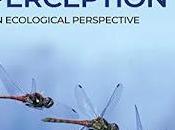
Michael Turvey runs a famously intense graduate level class on perception and action at CESPA. He has recently, finally, published a book of his lectures, in... Read more
Posted on 15 April 2020 LANGUAGES, PHILOSOPHY, PSYCHOLOGY, SCIENCE -
Transfer of Learning a Novel Coordinated Rhythmic Movement
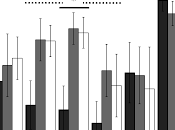
My PhD student Daniel Leach has just had his first paper accepted (preregistration, preprint, data analysis files available here on the OSF) so it's way past... Read more
Posted on 18 February 2020 LANGUAGES, PHILOSOPHY, PSYCHOLOGY, SCIENCE -
The Task Dynamics of Angiogenesis
In the last two posts, I have laid out the proposal that endothelial cells seem to actively perceive their environments, and set out the details of the... Read more
Posted on 05 November 2019 LANGUAGES, PHILOSOPHY, PSYCHOLOGY, SCIENCE -
Endothelial Cells Are Intelligent, Perceiving-Acting Agents
In my last post, I laid out a new project I'm working on about the perceptual life of cells. I spent the day at the Crick Institute recently to move the... Read more
Posted on 04 November 2019 LANGUAGES, PHILOSOPHY, PSYCHOLOGY, SCIENCE -
The Perceptual Life of Cells
Over the summer, at ICPA 2019, I met a computational biologist called Katie Bentley. She is interested in angiogenesis, the cellular level process of new blood... Read more
Posted on 22 October 2019 LANGUAGES, PHILOSOPHY, PSYCHOLOGY, SCIENCE -
Show Me the TALoN! (Thoughts on Raja & Anderson, 2019)
There is a special issue of Ecological Psychology out with contributions from lots of people (including us) on what a Gibsonian neuroscience might look like. Read more
Posted on 07 October 2019 LANGUAGES, PHILOSOPHY, PSYCHOLOGY, SCIENCE -
Can the Free Energy Principle Be Made Ecological? (Bruineberg Et Al, 2018)
Everyone loves Friston's free energy principle (FEP), and everyone wants it for their own. Not everyone can have it, though (well, at least not if it's going... Read more
Posted on 30 September 2019 LANGUAGES, PHILOSOPHY, PSYCHOLOGY, SCIENCE -
Where is the Haptic Information? (A Purple Peril)
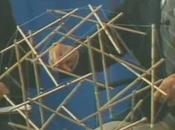
Haptics (or proprioception) is the sensory modality built into our bodies; it's provides constant information about the state of the body and things it is in... Read more
Posted on 01 November 2018 LANGUAGES, PHILOSOPHY, PSYCHOLOGY, SCIENCE -
Tolerance, Noise and Covariation in Skilled Action
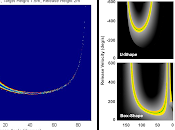
The field of motor control has been recently steadily moving towards the idea that there is no such thing as an ideal movement. Read more
Posted on 25 September 2018 LANGUAGES, PHILOSOPHY, PSYCHOLOGY, SCIENCE -
You Cannot Perceive a Relational Affordance (A Purple Peril)
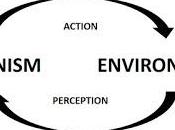
One of the more enduring arguments in ecological psychology is about the best way to formally describe affordances. The two basic approaches are that they are... Read more
Posted on 15 July 2018 LANGUAGES, PHILOSOPHY, PSYCHOLOGY, SCIENCE -
The Evolution of Sex Differences in Throwing
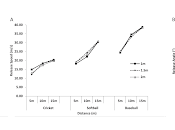
One of the most robust sex differences occurs in throwing. Men can throw (on average) much faster and therefore much farther than women, and this gap even exist... Read more
Posted on 31 May 2018 LANGUAGES, PHILOSOPHY, PSYCHOLOGY, SCIENCE -
The Ecological Approach to Virtual Reality
As virtual reality (VR) gear gets better, cheaper, and easier to use, there is renewed interest in trying to figure out how best to make a virtual environment... Read more
Posted on 27 April 2018 LANGUAGES, PHILOSOPHY, PSYCHOLOGY, SCIENCE -
Affordance Maps and the Geometry of Solution Spaces
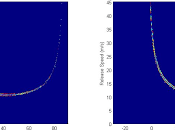
I study throwing for two basic reasons. One, it is intrinsically fascinating and I want to know how it works. Second, it's become a rich domain in which to stud... Read more
Posted on 17 April 2018 LANGUAGES, PHILOSOPHY, PSYCHOLOGY, SCIENCE -
General Ecological Information Does Not Support the Perception of Anything
One common critique of the ecological approach is how can we use perception to explain behaviour that is organised with respect to things in the world that... Read more
Posted on 01 March 2018 LANGUAGES, PHILOSOPHY, PSYCHOLOGY, SCIENCE -
Muscle Homology in Coordinated Rhythmic Movements
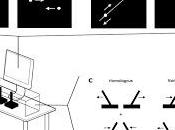
One of my main experimental tasks is coordinated rhythmic movement. This is a simple lab task in which I ask people to produce rhythmic movements (typically wit... Read more
Posted on 19 December 2017 LANGUAGES, PHILOSOPHY, PSYCHOLOGY, SCIENCE -
A Test of Direct Learning (Michaels Et Al, 2008)
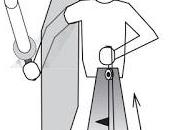
Direct learning (Jacobs Michaels, 2007) is an ecological hypothesis about the process of perceptual learning. I describe the theory here, and evaluate it here. Read more
Posted on 05 November 2017 LANGUAGES, PHILOSOPHY, PSYCHOLOGY, SCIENCE -
Evaluating 'Direct Learning'
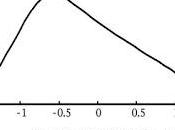
In my previous post I laid out the direct learning framework developed by Jacobs Michaels (2007). In this post, I'm going to evaluate the central claims and... Read more
Posted on 03 November 2017 LANGUAGES, PHILOSOPHY, PSYCHOLOGY, SCIENCE -
Direct Learning (Jacobs & Michaels, 2007)
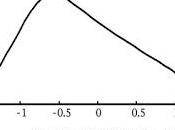
The ecological hypothesis is that we perceive properties of the environment and ourselves using information variables that specify those properties. Read more
Posted on 02 November 2017 LANGUAGES, PHILOSOPHY, PSYCHOLOGY, SCIENCE -
What Limits the Accuracy of Human Throwing?
Throwing a projectile in order to hit a target requires you to produce one lot of the set of release parameters that result in a hit; release angle, velocity... Read more
Posted on 21 October 2017 LANGUAGES, PHILOSOPHY, PSYCHOLOGY, SCIENCE -
The Information for Progressive Occlusion

Gibson's ecological psychology is weird, if you are coming from a more traditional information-processing background. The two approaches make radically differen... Read more
Posted on 16 September 2017 LANGUAGES, PHILOSOPHY, PSYCHOLOGY, SCIENCE
